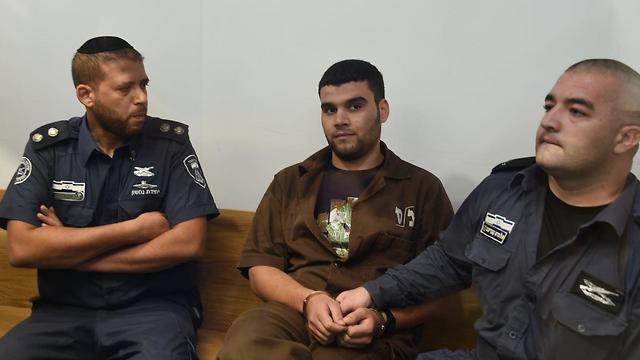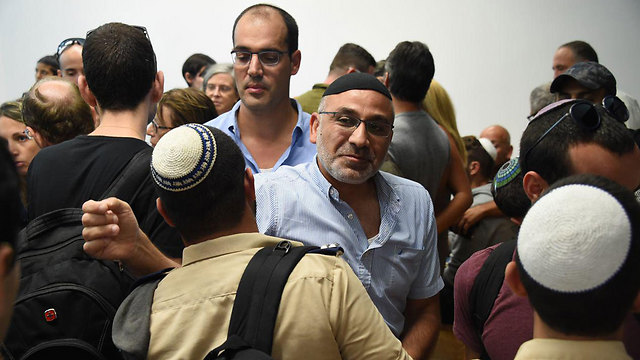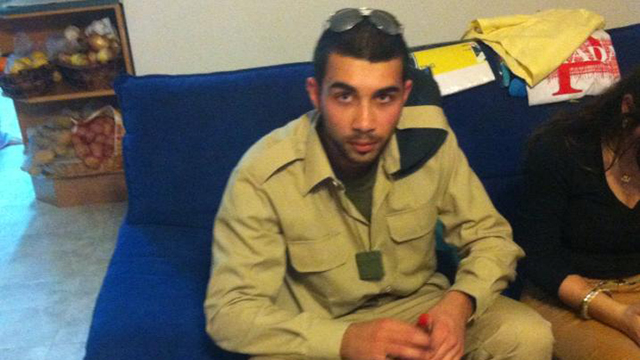Court sentences Nur a-Din Hashiya to life in prison, setting conditions to early release: he will have to serve at least 40 years before being paroled, and will not be included in any prisoner swap deal; Hashiya stabbed Shiloni in Tel Aviv while trying to snatch his weapon.
Terrorist Nur a-Din Hashiya, who murdered IDF soldier Almog Shiloni outside a Tel Aviv train station in November 2014, was sentenced to life in prison on Wednesday.
In an unprecedented ruling, the district court determined that the 20-year-old terrorist will spend at least 40 years in prison and could not be paroled before that. Moreover, the parole board will not be able to even discuss mitigating his sentence until 15 years have passed, and Hashiya will not be included in any future prisoner swap deal.
The court also ordered Hashiya, who was convicted in May 2016, to pay Shiloni’s family NIS 258,000 in compensation.

One of the judges stated in the verdict that the murder was ideologically motivated and that “it was only because Almog Shiloni fought back and thanks to his steadfastness that a much greater disaster was avoided. Shiloni’s murder was traumatic for the entire nation. In my view, the murder was committed under exceptionally grave circumstances.”
Yosef, Shiloni’s father, thanked the court. “The terrorist wanted to carry out a major attack, and Almog prevented him from doing so by stopping him with his body and showing great bravery,” he said.
“The judges made a unanimous decision, creating a precedent in which this horrible terrorist will go to jail for 40 years. We don’t take this for granted, and we want to thank (the court) for their sensitivity,” Yosef Shiloni added.

The father went on to say that “we felt Almog was with us all the way. As a family, we chose life, we founded a home for lone soldiers in his memory.”
According to the indictment, Hashiya illegally entered Israel on November 9, 2014, seeking to stab a soldier and become a martyr. He bought a knife at the Jaffa flea market and made his way to the Hagana Train Station, where he noticed Shiloni who was in uniform and carrying an M-16 rifle.
The terrorist started stabbing Shiloni in an effort to snatch his rifle, but Shiloni fought him. A passerby who noticed the struggle chased the terrorist away. Hashiya was later captured in a nearby building by Border Policemen.
Shiloni was critically wounded and succumbed to his wounds the next day.

Judge Miriam Diskin, who headed the judges’ panel that convicted Hashiya, described the murder “a terrible, heart-wrenching affair.”
“The attack was not spontaneous. He bought a knife at the flea market, and when he spotted the soldier, he decided to carry out his diabolical plan.”
The High Court of Justice cancelled the demolition order for the terrorist’s home, determining that the time that has passed from the attack and until the order was issued—11 months later—was too long and therefore would not help in creating deterrence.
As reported by Ynetnews
